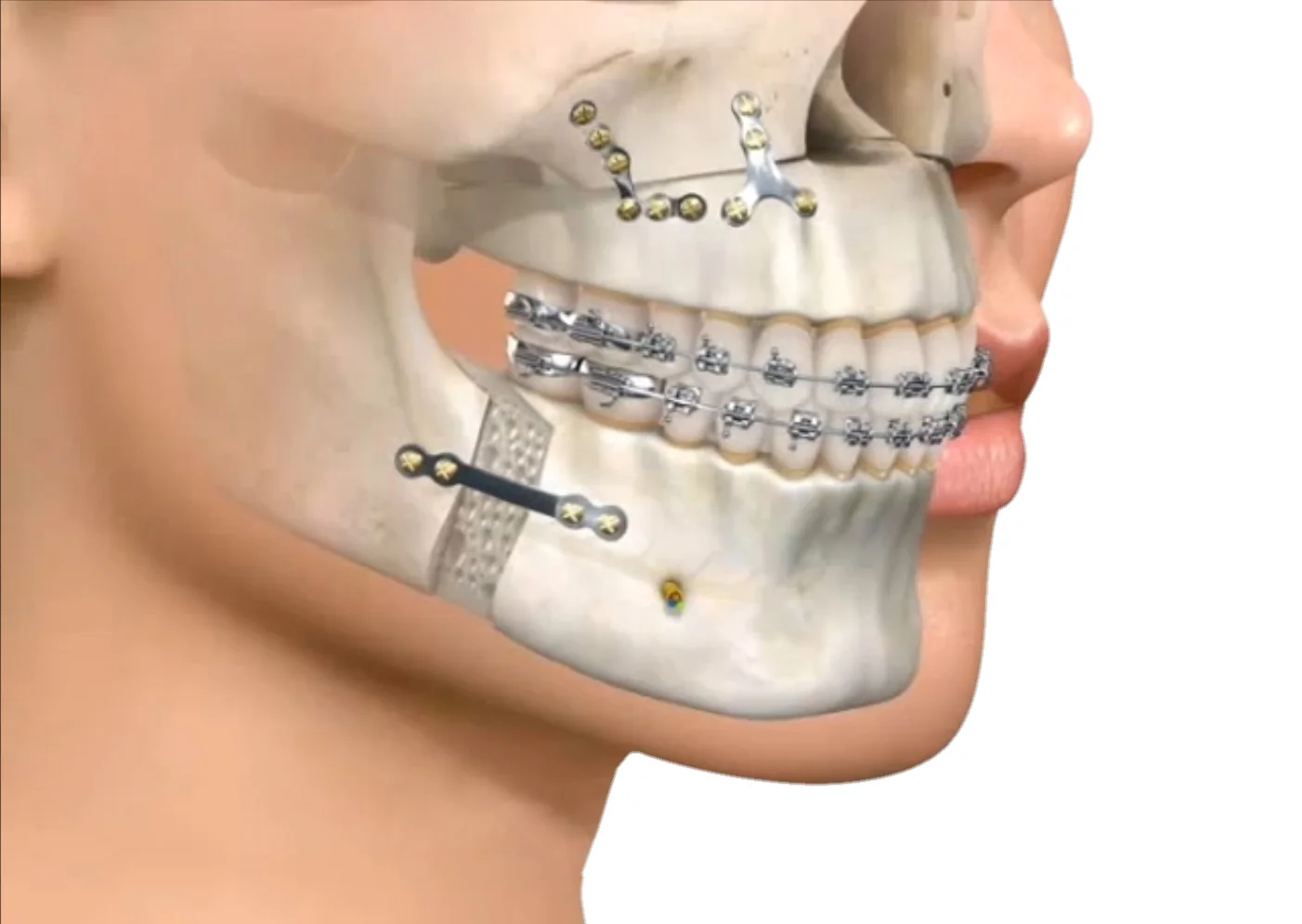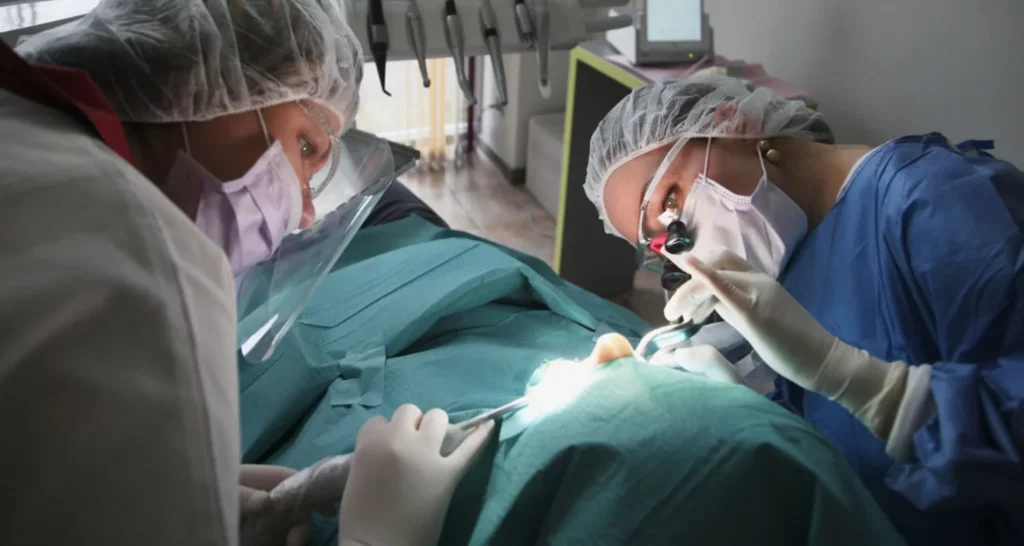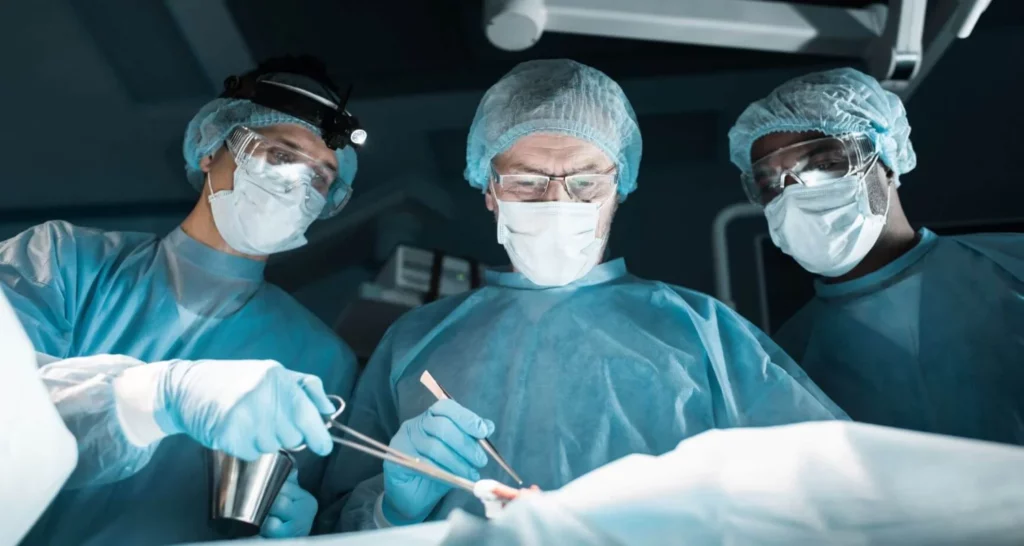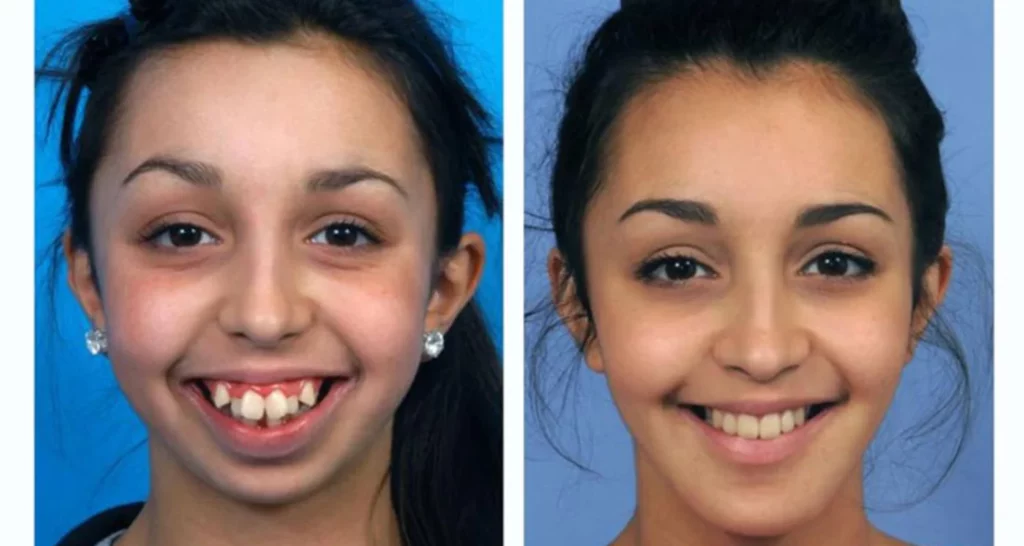Last Updated on: 11th December 2025, 10:13 am
Maxillofacial surgery is a branch of dentistry (and reconstructive medicine) that focuses on improving facial harmony and functionality. This discipline combines the precision of dentistry with advanced surgical techniques to address a variety of conditions, from bite problems to congenital or acquired facial deformities. Using a highly specialized surgical procedure, maxillofacial surgeons can correct cosmetic and functional problems affecting the mouth, jaw, and surrounding facial structures. In this article, we will talk about what is maxillofacial surgery, and how it can transform patients’ lives, restoring confidence and functionality.
What Is Maxillofacial Surgery
Various applications of oral and maxillofacial surgery
Maxillofacial surgery covers a wide range of applications that go beyond aesthetic correction. Among the most common are:
1. Correction of malocclusions: One of the most common applications of maxillofacial surgery is the correction of serious bite problems that cannot be resolved with orthodontics alone. Using procedures that section the maxilla or mandible, the jaws can be properly aligned while the chewing function and facial aesthetics are improved. There are three types of malocclusions: sagittal, vertical, and transverse. To learn more about them, click here.
2. Treatment of facial trauma: Maxillofacial surgery plays a crucial role in repairing bone and soft tissue fractures, restoring facial form and function after accidents or injuries.
3. Diagnosis and treatment of maxillofacial cancer, cysts and tumors in the head and neck: Maxillofacial surgeons play a crucial role in removing these pathologies and reconstructing the affected region, restoring facial appearance while ensuring that the patient can speak, eat, and breathe normally.
4. Orthognathic surgery: Orthognathic surgery is a valuable tool for correcting congenital (birth) facial deformities, such as a cleft lip and palate.
5. Sleep apnea: Some maxillofacial surgery procedures are indicated to treat obstructive sleep apnea. By modifying the upper respiratory structures, such as the soft palate and jaw, it is possible to relieve symptoms and improve sleep quality.
Other applications of maxillofacial surgery include:
● Preparation for placement of dental implants and prostheses
● Bone grafts or bone transplant from another area of the body
● Treatment of disorders of the joint to connects the jaw to the rest of the skull (temporomandibular joint)
If you want to learn about jaw and bite correction, check out this related article on the subject.
Collaborative approach to oral and maxillofacial surgery
One of the most notable and rewarding aspects of maxillofacial surgery is its collaborative nature. This specialty is not limited to the surgical skill of a single professional, but it benefits greatly from an interdisciplinary collaboration. Before oral and maxillofacial surgery, careful planning involving multiple specialists is undertaken. This may include three-dimensional imaging studies, evaluation of respiratory function, and detailed discussions of the patient’s aesthetic and functional goals.
Furthermore, this collaborative approach is not limited to the operating room. After surgery, close communication is maintained between the medical team to ensure a smooth recovery. This may involve orthodontic adjustments, speech therapy, or physical therapy as needed.
Recovery of the oral and maxillofacial surgery
Recovery after oral and maxillofacial surgery will vary depending upon the type of procedure performed. You will likely experience some discomfort, tenderness, swelling, and bleeding in the days immediately following it. Your healthcare professional may suggest pain relievers to relieve any discomfort. If you have received sutures, they will dissolve or be removed approximately after a week.
Care recommendations after oral and maxillofacial surgery:
Your healthcare professional will provide specific instructions, which may include:
● Use cold compresses to reduce swelling.
● Avoid crunchy, hard foods or items that require a lot of chewing.
● Refrain from consuming tobacco and alcohol.
● Avoid exercise for a few days, as it could increase the risk of bleeding and inflammation.
● Rest adequately to prevent possible complications.
● For the first few days, choose to rinse your mouth instead of brushing your teeth to eliminate oral bacteria.
Transformative results of oral and maxillofacial surgery
The results of oral and maxillofacial surgery can be truly transformative. Patients experience significant improvement in facial aesthetics, often resulting in increased self-confidence. Additionally, correcting functional problems can eliminate chronic discomfort and improve overall quality of life.
Is oral and maxillofacial surgery medical or dental?
Maxillofacial surgery is a specialty of dentistry. After the 4 years of academic training to obtain the title of dentist, the maxillofacial surgeon must complete a 4-year hospital residency to access this title and pass an exam to obtain certification from the American Board of Oral and Maxillofacial Surgery.
Costs of a oral and maxillofacial surgery procedure
The costs of maxillofacial surgery for patients who are not covered by health insurance will vary depending upon the complexity of the procedure and the geographic location of the specialist. The value can range between $20,000 and $40,000, being more economical when only one of the two jaws is involved. These costs may increase if pre- or postoperative management is required, such as intervention with orthodontic appliances or functional therapy after the intervention.
Conclusion
Maxillofacial surgery is a diverse specialty that covers a wide range of applications. Each case is unique, and the goal of treatment is to improve both the patient’s facial function and aesthetics. These transformative applications demonstrate how maxillofacial surgery can have a profound impact on people’s lives, restoring confidence and facial function.
Frequently Asked Questions
What steps to follow before oral and maxillofacial surgery?
It is essential to keep the stomach empty. Your oral surgeon will instruct you not to consume food or liquids after midnight or for at least eight hours before the procedure. This is essential to prevent complications related to the anesthesia. If you ingest anything during this period, even coffee, your oral surgery may need to be rescheduled.
Up to what age can jaw surgery be performed?
Jaw surgery is usually rarely performed on people under the age of 18, as the jaw is still growing. Additionally, people over 45 years of age may be suitable candidates, depending upon their general and dental health. Whenever feasible, we recommend that patients first consider less invasive techniques.
When can I eat after maxillofacial surgery?
It is essential to stay well hydrated. However, avoid consuming hot liquids or foods. On the day of the operation, it is recommended to opt for soft foods and light liquids. You should return to your normal diet as soon as possible, unless otherwise instructed by your surgeon.
What is the recovery process like after maxillofacial surgery?
The time required for complete recovery from maxillofacial surgery on the jaws depends upon the nature of the procedure. Typically, the process can take between nine and twelve months. In the first phase of recovery, it is common to experience bruising, which tends to disappear within one or two weeks. On the other hand, inflammation can persist for a longer period, often four to six weeks.
Share:
References
1. Gillette, H. (Dec 8, 2022). What is maxillofacial surgery? Medicalnewstoday.com. https://www.medicalnewstoday.com/articles/what-is-maxillofacial-surgery
2. Maxillofacial surgery. (2021). Cleveland Clinic. https://my.clevelandclinic.org/health/treatments/22124-maxillofacial-surgery
3. OMS procedures. (s/f). Aaoms.org. https://www.aaoms.org/education-research/dental-students/oms-procedures
4. Oral and maxillofacial surgery. (Apr 7, 2015). Health Careers. https://www.healthcareers.nhs.uk/explore-roles/doctors/roles-doctors/surgery/oral-and-maxillofacial-surgery
5. What is a maxillofacial surgeon? (Jul 9, 2023). WebMD. https://www.webmd.com/a-to-z-guides/what-is-maxillofacial-surgeon
6. Orthognathic surgery cost. (s/f). CostHelper. https://health.costhelper.com/orthognathic-surgery.html
7. What is Oral & Maxillofacial Surgery? (s/f). Org.uk. https://www.baoms.org.uk/patients/what_is_oral_maxillofacial_surgery.aspx
-
Nayibe Cubillos M. [Author]
Pharmaceutical Chemestry |Pharmaceutical Process Management | Pharmaceutical Care | Pharmaceutical Services Audit | Pharmaceutical Services Process Consulting | Content Project Manager | SEO Knowledge | Content Writer | Leadership | Scrum Master
View all posts
A healthcare writer with a solid background in pharmaceutical chemistry and a thorough understanding of Colombian regulatory processes and comprehensive sector management, she has significant experience coordinating and leading multidisciplina...


















